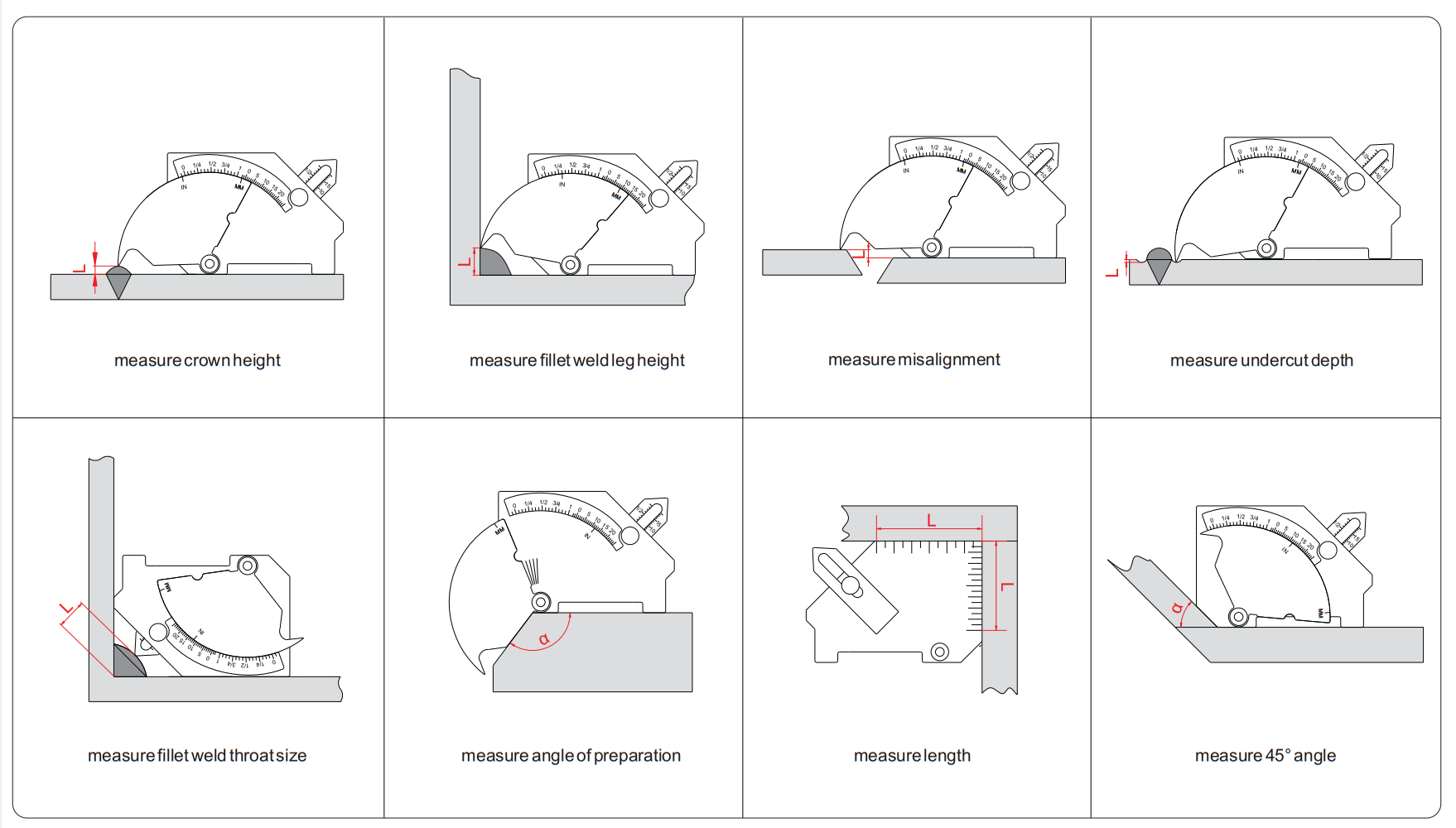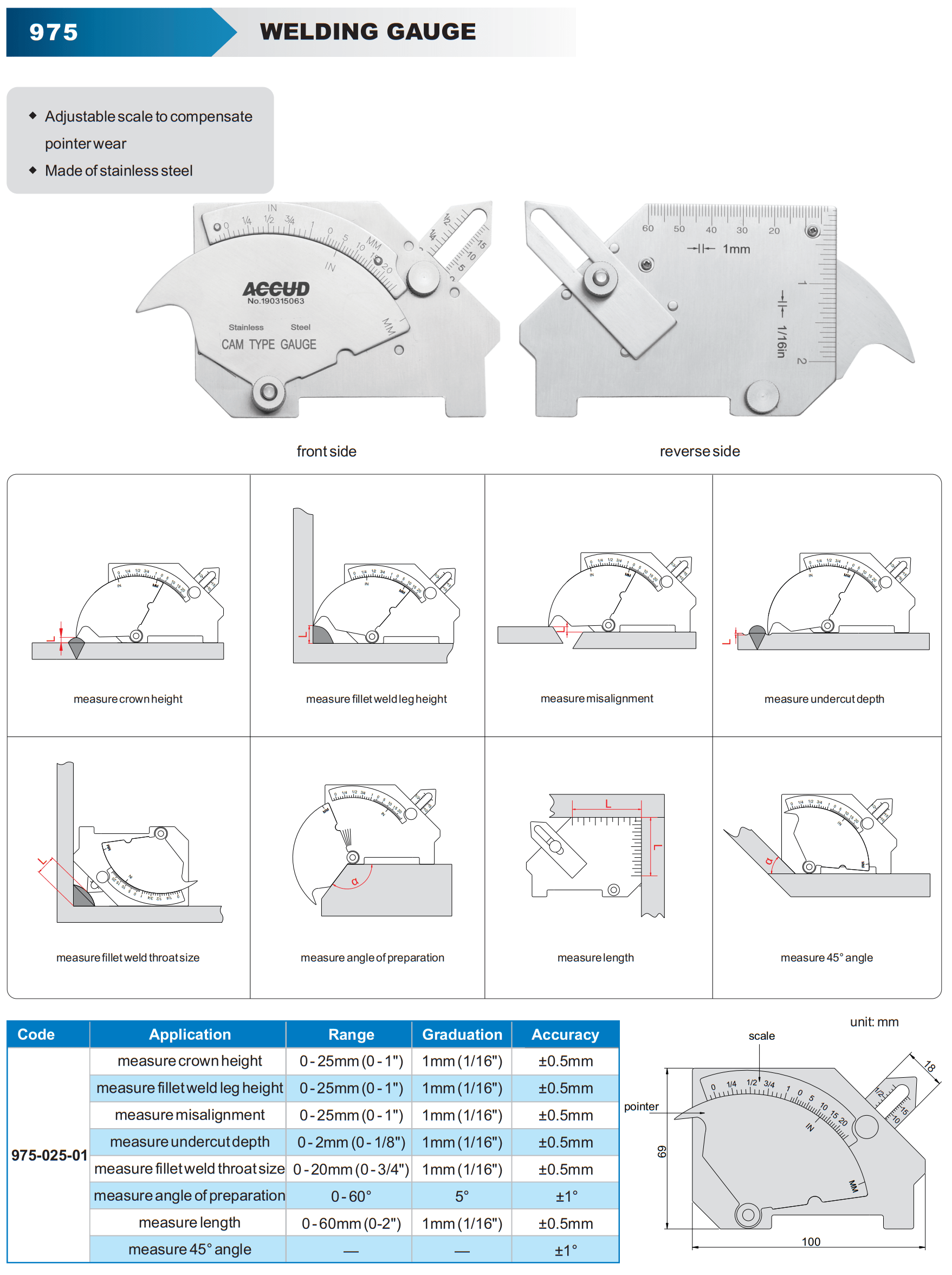
- Stock: In Stock
- Brand: ACCUD
- Model: AC975-025-01
- Weight: 0.14kg
- Dimensions: 98.00cm x 128.00cm x 128.00cm
- SKU: AC975-025-01
- UPC: 6009515858193
SERIES 975
A universal welding gauge is used to measure various parameters related to welding, such as bead width, depth, and undercut. By using a universal welding gauge, you can ensure that your welds meet the required standards and are of high quality.
- Measure leg length
- Measure leg height
- Measure misalignment
- Measure crown height
- Measure throat size
- Measure angle
- Measure gap
- Measure length
Applications:
- Welding inspection: Assessing the quality of welds.
- Quality control: Ensuring compliance with welding standards.
- Research and development: Analyzing welding processes.


How to Use a Universal Welding Gauge:
-
Measure Leg Length: For fillet welds, place the gauge's appropriate edge or cutout against the weld and check that the leg length meets the required specifications.
-
Check Throat Thickness: Use the gauge to measure the throat thickness by aligning it between the weld's root and face.
-
Measure Weld Reinforcement: Place the gauge on the surface to check the weld reinforcement height, ensuring it's within acceptable limits to prevent excess or insufficient material.
-
Check Angles: For V-groove or bevel welds, use the angle measurement feature to ensure the proper angle of the weld.
-
Undercut Depth Measurement: Position the gauge along the weld toe to measure any undercuts and verify that the depth is within allowable limits.
-
Measure Gaps (Fit-Up): Before welding, use the gauge to measure the gap between parts to ensure proper alignment and fit-up for strong joints.
Key Features:
- Multiple measuring blades: Allows for measuring different parameters like bead width, depth, and undercut.
- Accuracy: Provides precise measurements for quality control.
- Durability: Built to withstand harsh industrial environments.
- Portability: Often has a compact design for easy carrying and use.
Unlimited Blocks, Tabs or Accordions with any HTML content can be assigned to any individual product or to certain groups of products, like entire categories, brands, products with specific options, attributes, price range, etc. You can indicate any criteria via the advanced product assignment mechanism and only those products matching your criteria will display the modules.
Also, any module can be selectively activated per device (desktop/tablet/phone), customer login status and other criteria. Imagine the possibilities.













